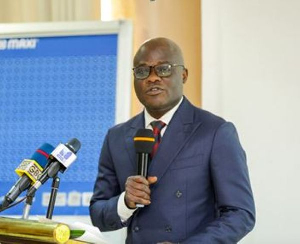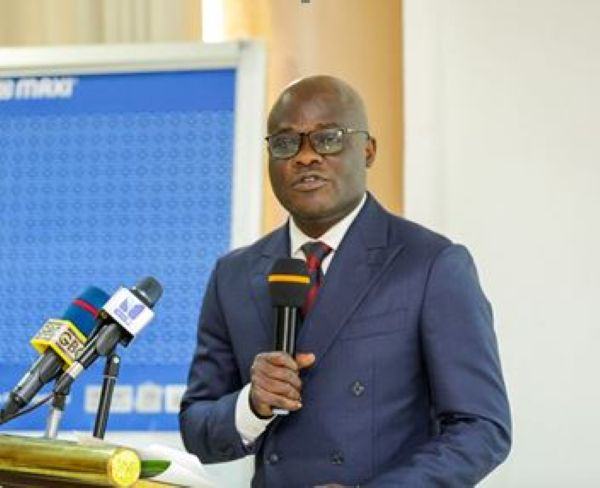 Ahmed Ibrahim, Minister for Local Government, addresses the audience
Ahmed Ibrahim, Minister for Local Government, addresses the audience
The Minister of Local Government, Chieftaincy and Religious Affairs, Ahmed Ibrahim, has reiterated government’s commitment to strengthening property taxation as a strategic tool for domestic revenue mobilisation and sustainable development at the local level.
Speaking at a workshop organised by the African Cities Research Consortium (ACRC) in collaboration with the Local Governance Network (LoGNet), he explained that property taxation remains one of the most underutilised yet potentially transformative revenue sources available to Metropolitan, Municipal and District Assemblies (MMDAs).
Ibrahim noted that despite the long-standing intention for property tax to serve as a financial cornerstone for MMDAs under Ghana’s decentralised governance system, the vision has largely remained unfulfilled.
“Property taxation is a powerful yet underexploited revenue tool in Africa and Ghana is no exception. Its potential is constrained by systemic challenges such as outdated valuation rolls, fragmented property registers, weak enforcement mechanisms and low taxpayer confidence,” he stated.
The minister also pointed to structural issues, including lack of clarity in mandates between central and local governments, inadequate technical capacity, technological gaps and political resistance as significant obstacles hampering effective property tax collection.
Under Section 144 of the Local Governance Act, 2016 (Act 936), MMDAs were originally mandated to collect property taxes. However, a centralised system introduced by the previous administration – managed by the Ghana Revenue Authority (GRA) – shifted that responsibility, undermining local government revenue mobilisation efforts.
While the unified system was designed to enhance national oversight and streamline processes, it ultimately weakened the financial autonomy of local authorities. The current administration, under its Resetting Agenda, has pledged to reverse the policy and return collection responsibilities to MMDAs – accompanied by technical support and capacity-building initiatives.
In a forward-looking move, Mr. Ibrahim also disclosed plans of introducing municipal bonds to help MMDAs raise funds for targetted development projects. Additionally, he revealed that government is working toward enacting the Local Government (District Assemblies Borrowing) Act.
This legislation will enable local authorities to access capital markets and foster public-private partnerships (PPPs) for financing infrastructure and improving service delivery.
“The way forward is empowering MMDAs – not just with the mandate, but also tools and resources to effectively collect and manage property taxes,” he concluded.
